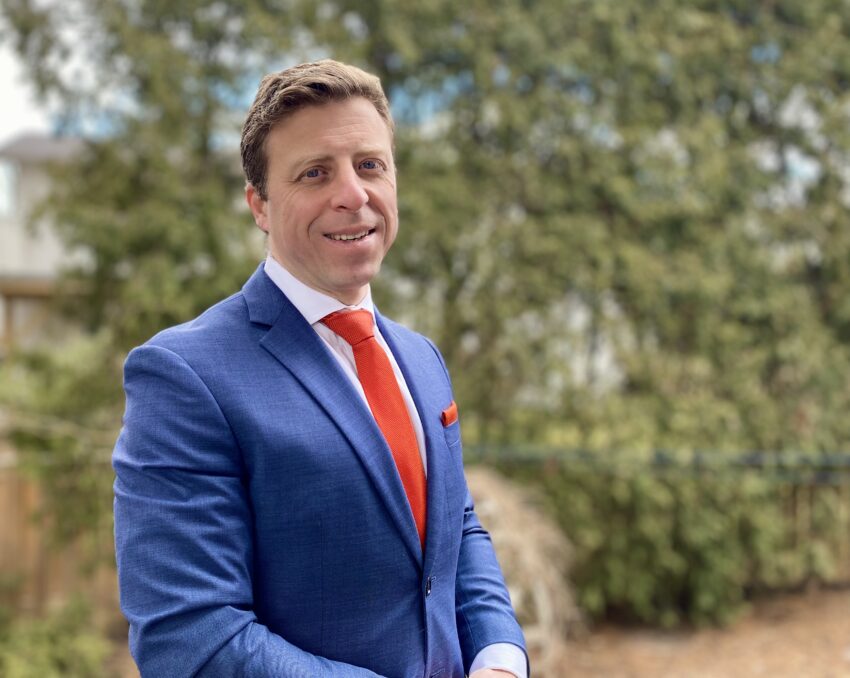After the revelation that Tiny had hired a private investigator to check out illegal short-term rentals, Glen Sloutsky says he knew he had to speak up.
“We believe that the CAO has made this his personal vendetta to make this bylaw stay in place,” says Sloutsky, who is a board member and spokesperson for a short-term rental group called the Responsible Hosts of Tiny, which has opposed the municipality since enactment of a short-term rental bylaw in 2022.
The measure was brought to CAO Robert Lamb for authorization, allowing the hired private investigator to, according to a fourth-quarter law enforcement report, “rent a property, obtain receipts, document communications, take interior photos, and even photocopy the manual that a property may have out.” The result was “significant new information” supporting previous charges for the property, said chief municipal law enforcement officer Steve Harvey at the meeting.
To provide a contrasting perspective, Sloutsky contacted MidlandToday with the point of view from the individual who was subjected to the inspection by the private investigator.
Following his February 2023 deputation asking for a pause on the bylaw and request for a dialogue, which resulted in Mayor Dave Evans referring to bylaw opponents as “delusional” in the next meeting, Sloutsky’s group looked to the Superior Court of Ontario in challenging the legality of the bylaw.
“We assert that the bylaw is overreaching, it’s illegal, it entrenches on property rights, and takes away the rights we used to have before the bylaw,” said Sloutsky.
He noted that while a backlog of cases in the court has delayed theirs to an undetermined time in 2024, “the township has refused to enter into any kind of dialogue to prevent the court case from going to trial. We’ve asked numerous times; they have been stonewalling us from doing so.”
As per the near-dozen individuals charged in violation of the bylaw, Sloutsky stated: “The Crown doesn’t really want to prosecute them because they are reluctant to have conflicting verdicts — one where a person is found to be in contravention of the bylaw, and potentially another (where the) bylaw itself is deemed to be illegal — so they’ve been pushing all of these charges out to coincide with the grander Superior Court case.”
Sloutsky said that the particular investigated resident had applied and paid for a licence during the initial call in 2022, but a clerical error on the person’s part negated the application as well as a return of the $1,500 fee meant to keep the program cost-neutral from other residents. This meant a new application would need to be filled out as well as another fee payment.
A private investigator hired by Tiny’s lawyer confirmed the short-term rental operator was renting in 2023 without a licence; however, Sloutsky stated the RHT “were floored when we heard” that after spending taxpayer money for a private investigator and booking them through the rental system, Tiny would be “unable to convict (them) under any way possible because of the court situation.”
“That private investigator booked this person’s place — said that he was going on an anniversary with his wife — in the meantime he went in, took pictures, submitted those pictures to the township,” Sloutsky said. “So, the person feels very violated and lied to; and this is after (they) tried to submit and get a licence legitimately.”
Sloutsky’s group was told that due to client-attorney privilege, a Freedom of Information request wouldn’t reveal how much it cost to hire the private investigator using taxpayers’ money nor who was contracted.
MidlandToday reached out to Lamb asking for comment on several of Sloutsky’s allegations, as well as clarification on the challenges Sloutsky posed regarding the legality of the township’s activities. At the time of publication, however, Lamb had declined to respond.
By way of credentials, Sloutsky says he has worked as a management consultant for two decades advising all tiers of government on policy matters.
Sloutsky did opt to challenge one aspect of the legality and related enforcement of short-term rental licences, as noted in the previous MidlandToday article on the matter.
“Under the municipal legislation, the fines that could be imposed for not being licensed are only administrative in nature, not criminal (similar to traffic tickets),” stated Sloutsky. “On the other hand, if you do get a licence, you become liable for criminal charges. So, paradoxically, getting a licence places you at risk of being criminally charged for the actions of your renters.
“This is one of the reasons I also refuse to take on this liability and get a licence,” he added.

